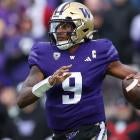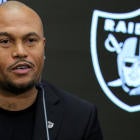Bill Belichick has a well-established philosophy when it comes to winning championships. On Friday, New England's six-time Super Bowl championship coach confirmed that that philosophy has nothing to do with science. Belichick, during his weekly Friday press conference, was asked how big of a role analytics plays into the Patriots' day-to-day operations.
"Less than zero," Belichick said, via ProFootballTalk.com. "Analytics is not really my thing."
Belichick essentially said the same thing in 2016 when asked about analytics.
"You could take those advanced websites and metric them wherever you want," Belichick said less than three months before winning his fifth Super Bowl, an overtime win over Atlanta in Super Bowl LI. "I don't know. I have no idea. I've never looked at one. I don't even care to look at one. I don't care what they say ... All the metric pages and all of that, I mean I have no idea. You'd need to ask that to a smarter coach than me."
Analytics started becoming vogue in professional sports at the turn of the decade following the Oakland A's success that spawned the book and movie titled "Moneyball". In 2002 Athletics general manager Billy Beane leaned on then assistant Paul DePodesta's method of using advances analytics to build rosters and in-game strategies to help level the playing field between rich and low market teams. The result was a 103-win regular season that included a 20-game winning streak for Oakland, which had one of the lowest payrolls in Major League Baseball.
While DePodesta took his advanced methods to Cleveland (where he is the Browns' chief strategy officer), many other teams in professional sports have started using analytics and other advanced metrics to help them win games. The argument for using analytics is that it can help decipher certain tendencies teams and players can have at certain points in a game. Analytics is also used by many teams when it comes to building rosters while finding different ways to evaluate a prospect's strengths and weaknesses.
Belichick, however, apparently doesn't believe that analytics would give him any type of edge when it comes to winning championships. Or at least that's what he says publicly. Is it possible Belichick cares more about analytics than he leads on? Sure. it is possible Belichick interprets the analytics differently during the regular season in order to avoid giving away New England's tendencies for when teams prepare to play them in the postseason? Probably so.
While there probably isn't another coach that can break down film better than him, Belichick's greatest strength may be his ability to build championship rosters. Bill Parcells, a Hall of Fame coach who won two Super Bowls as the New York Giants head coach with Belichick as his defensive coordinator, detailed Belichick's philosophy for building a championship roster during ESPN's 30 for 30 documentary, "The Two Bills".
"He has this reservoir of players in his head that he's either had himself or been with on some of our teams, the Giants, or other teams and he's seen players like that be successful and he has a role in mind," Parcells said. "And he's taken, that, I think, to the nth degree in New England."
Belichick certainly has. Along with his ability to decipher what roles and players he needs to successfully fill those roles on a yearly basis, Belichick has coached and coached against some of the greatest teams, players and coaches in NFL history. It's that wealth of experience and knowledge that has helped him win 264 games as an NFL head coach, the third-highest total in league history.
Belichick has also had the fortune of having quarterback Tom Brady throughout his championship run in Foxboro. With 45 years of NFL experience and with an all-time great quarterback under center, it's clear that Belichick doesn't need to rely on analytics to find a winning edge.






















